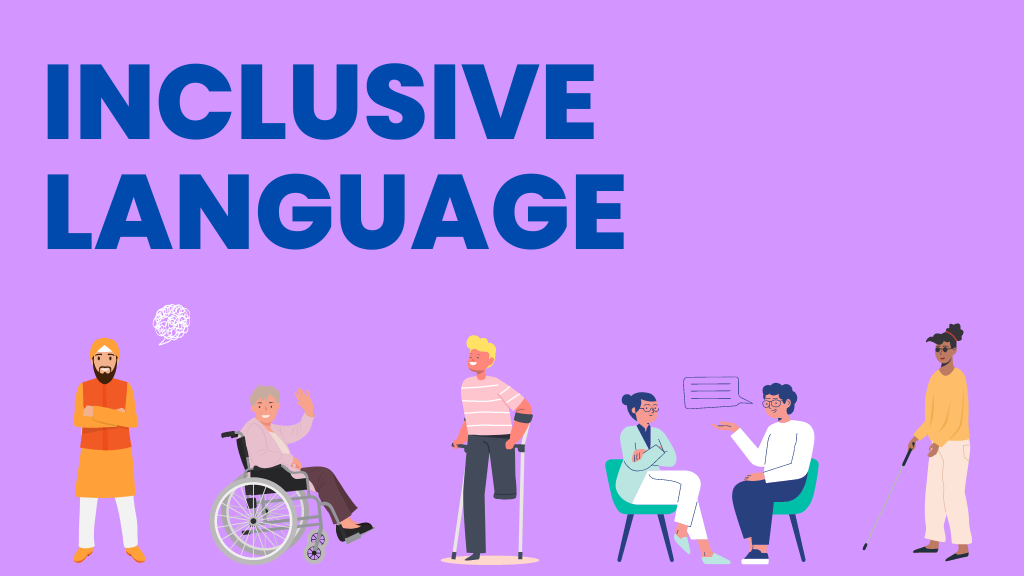How to confidently use the language of disability to promote inclusion
‘Disability’ is not a bad word and it is important to know how to talk about disability to be a good ally.
Too often, many people avoid talking about disability for fear of saying the wrong thing – so they say nothing.

But avoiding the conversation altogether will exclude an already underrepresented group. Ask yourself, how can we drive positive change in the disability space if we fail to speak up?
In this article, you will find general tips for how to talk about disability to promote inclusion.
Much of the advice is taken from Enterprise’s charity partner and leading organisation in disability inclusion, Business Disability Forum, who explore this topic in detail in their ‘Inclusive Communication Toolkit’.
"how can we drive positive change in the disability space if we fail to speak up?"
Firstly, it is important to consider that how people identify themselves varies from person to person. The language we use to describe ourselves is personal and disability is just one aspect of who a person is.
That is why it is best not to make assumptions and to ask the person what language they prefer.
A person may be defined as disabled under the law but may not regard themselves as having a disability or even use the term ‘disabled’ to describe themselves.
As an example, people who have autism or dyslexia may prefer ‘neurodiverse’, ‘autistic’ or ‘dyslexic’.
Another consideration is refraining from using emotive or patronising language such as ‘victim’, ‘sufferer’, ‘vulnerable’, ‘brave’ or ‘superhero’ just because a person has a disability.
Often people with disabilities are grouped together in ways like ‘the disabled’ or ‘the blind’ which suggest that they are part of a uniform group, rather than recognising that they are individuals with their own preferences and identity.
"Sometimes engaging in conversations that we find uncomfortable are the most impactful for promoting inclusion"
What makes inclusive language more complex is that some words and phrases will be viewed as acceptable and unacceptable depending on the language and culture, so you need to consider your audience.
For instance, if writing for a UK audience, then ‘disabled people’ is most often used. If communicating with a global audience, then ‘people with disabilities’ is more widely used as it emphasises the person over their disability.
Before mentioning a person’s disability, always consider whether it is necessary or appropriate to do so. If you do need to mention a particular disability or disabilities, make sure the language you use is accurate and doesn’t cause people to feel excluded.
Despite our best intentions, we don’t always get it right when it comes to language. Sometimes engaging in conversations that we find uncomfortable are the most impactful for promoting inclusion and driving positive change.
As language continues to evolve, evolve with it. Continue to educate yourself, learn from mistakes and embrace inclusive language to become a better ally for disability inclusion.
If you are interested in a career with Enterprise, please visit our recruitment website at careers.enterprise.co.uk.
